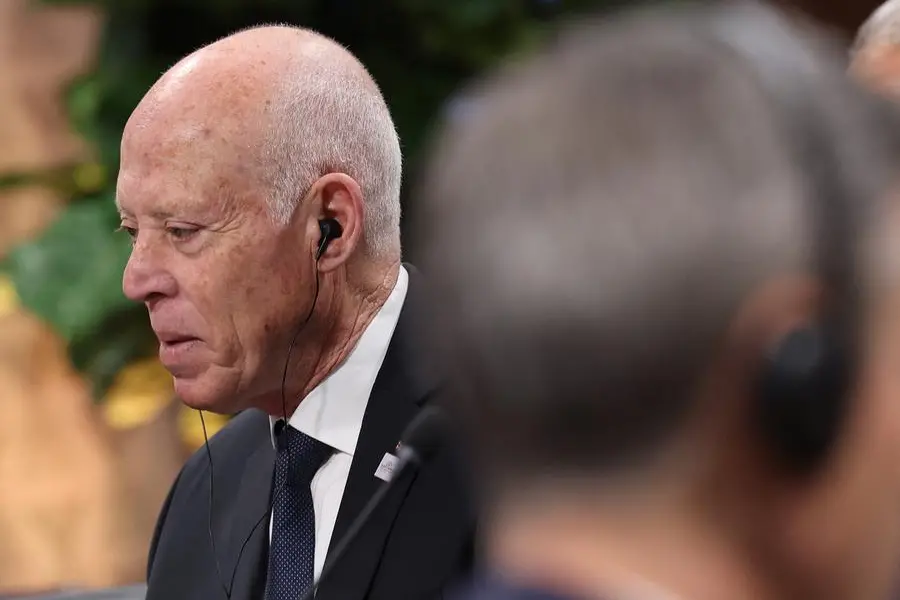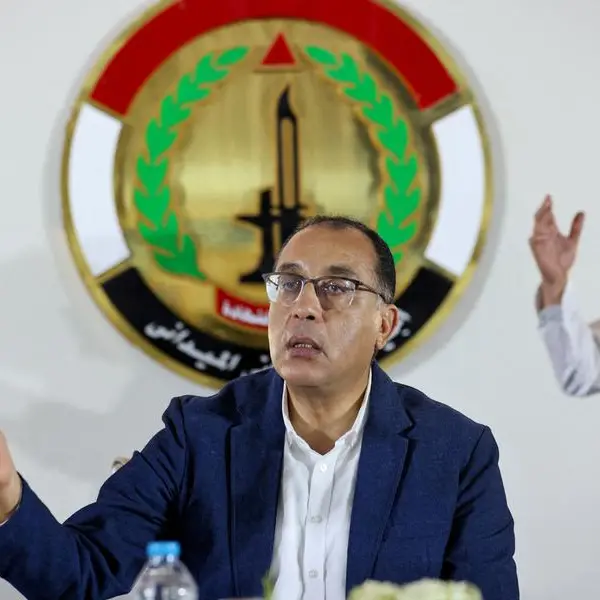PHOTO
Tunisia on December 17 will hold polls to replace a parliament dissolved by President Kais Saied following a power grab nearly a year and a half ago.
Saied suspended the assembly, which was dominated by the Islamist-inspired Ennahdha party, and sacked the government in July 2021, later pushing through a new constitution enshrining his one-man rule.
Here is a timeline of events in the country, which in 2011 set off the wave of Arab Spring pro-democracy uprisings by ousting autocratic leader Zine El Abidine Ben Ali.
- July 2021: Saied's power grab -
Tunisia is gripped by political deadlock in 2020 and the first half of the following year.
Saied, a former law professor elected president in 2019 on an anti-corruption agenda, is at loggerheads with prime minister Hichem Mechichi and parliament speaker Rached Ghannouchi, the leader of Ennahdha.
The stalemate cripples the country's response to the coronavirus pandemic.
On July 25, 2021, thousands of Tunisians demonstrate against the government as the number of Covid-19 deaths surges to one of the highest per capita worldwide.
That night Saied suspends parliament for 30 days, surrounds it with tanks, and dismisses Mechichi, citing an article in the 2014 constitution he says allows him to take "exceptional measures" to protect the state.
He warns that armed opposition will face a "rain of bullets".
Ennahdha slams Saied's actions as a "coup".
In August, Saied extends the suspension of parliament.
- September 2021: rule by decree -
On September 22, Saied assumes powers that effectively allow him to rule by decree.
Three days later, around 20 rights groups warn of a slide back towards the authoritarianism of the Ben Ali era.
On September 26, some 2,000 people in the capital Tunis protest against Saied's moves.
- September 2021: first woman PM -
On September 29, Saied names little-known geologist Najla Bouden as the Arab world's first-ever female prime minister.
In early October, thousands of people take part in pro-Saied demonstrations across the country.
Bouden forms a government, but Saied heads the cabinet.
- December 2021: road map -
On December 13, Saied presents a road map for overhauling the country's political system.
He announces a referendum for July 2022 on constitutional reforms, and says parliament will remain suspended until new elections in December 2022.
- March-June 2022: parliament, judges targeted -
On March 30 2022, Saied dissolves parliament outright after lawmakers hold a session online and pass a bill against his "exceptional measures".
In June, he tightens his grip on the judiciary and sacks dozens of judges.
- June-July 2022: risk of 'dictatorship' -
A draft constitution giving vast new powers to the president is published on June 30.
The legal expert who oversaw its drafting says the version Saied published has been changed in a way that could lead to a "dictatorial regime".
Saied later publishes a slightly amended draft.
- July 2022: referendum -
Opposition parties boycott the July 25 constitutional referendum.
Only 30.5 percent of eligible voters cast a ballot, but those who do overwhelmingly back the new charter.
A victorious Saied announces that Tunisia "has entered a new phase".
- September 2022: opposition announces vote boycott -
In September, the National Salvation Front -- Tunisia's main opposition alliance, which includes Ennahdha -- announces a boycott of December's parliamentary polls.
On October 15, thousands of Tunisians hold an anti-Saied demonstration in the capital, organised by the coalition.
The same day, the International Monetary Fund and the Tunisian government reach a tentative agreement to unblock a $1.9 billion loan, subject to a "comprehensive economic reform program".
- December 2022: Saied defends moves
On December 10, a week before the vote, hundreds of people in Tunis demonstrate against Saied, calling for him to step down.
On December 14, Saied defends his dissolution of parliament, telling US Secretary of State Antony Blinken that "the country was on the brink of civil war".




















